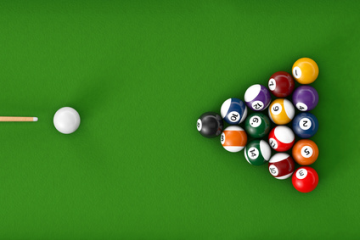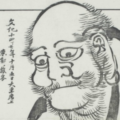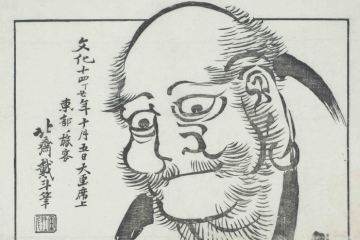Note: I initially wrote this in Japanese in Dec 2010 and thoughtfully revised and translated it into English to share its insights with a broader audience.
Contents
The Numbers Game: A Positive Take on the Japanese proverb
While not typically used positively, there’s a Japanese proverb that says, “下手な鉄砲も数打ちゃ当たる.” What often strikes me about this saying is that it overlooks the learning curve effect that humans can improve their shooting technique and develop their skills while taking multiple shots (unless you shoot breathlessly or just randomly with a machine gun). They can improve their technique and acquire their insight, situational judgment, and ingenuity in the process. They become sharply focused. As a result, one is no longer a poor marksman.
Everyone must start as a terrible shooter and take many shots to hone their skills. Without taking numerous shots, neither improvement nor refinement can be achieved, and consequently, luck won’t come your way.
People who are too confident in their intelligence tend to underestimate the importance of taking many shots or being hell-bent on doing something. They arrogantly presume they have a “hack” to predict and generate good results, finding shortcuts efficiently. However, in reality, unless you actually keep shooting tenaciously, you can neither learn much nor find many opportunities you expected.
Recently, I was impressed by an interview with a music industry veteran who frequently used the term “Numbers Game.” He suggested enjoying the process of “taking many shots” itself as a game. Isn’t this an essential mindset for any job? Keep shooting without being swayed by individual results, treat it as a kind of game, and enjoy your “growth process” while continuing to take shots. If you have such mental capacity, you might be able to approach any challenge with a calm mind, whether it’s cold calling, job interviews, or auditioning.
The true value of ‘taking many shots’ is not just a game of probability. It’s a process of growth and learning. Let go of an attachment to results, maximize the number of actions, learn from feedback and reactions, and improve the quality of actions. Repeat and continue this process. It is this process that actually counts. Embrace this journey of growth and learning, and you’ll find delight in itself.
Note: I think “下手な鉄砲も数打ちゃ当たる” is similar to these English proverbs, though I don’t know how common they are.
– Even a blind squirrel finds a nut once in a while.
– If you throw enough mud at the wall, some of it will stick.
– Even a Poor Marksman May Hit the Target If He Shoots Often Enough (a saying introduced in some Japanese-English dictionaries. I don’t even know if this is really a legitimate saying.)
On the other hand, these two proverbs sound more positive and are closer to what I meant by this blog, as they seem to imply the learning curve effect or the magic of repetition.
– He who shoots often hits at last
– Fake it till you make it
The more you move, the more chances come your way, but risks and accidents also increase. Even when you’re careful and in control, mistakes by those around you or associates can lead to misfortunes on your end. However, fearing this and not taking action means “not learning anything = not moving forward.” We Japanese people, who tend to have an intense fear index and safety orientation, often avoid taking action or take a long time to act. Action generates a “virtuous cycle” of learning from achievements and risks, while inaction leads to a “vicious cycle” of stagnation (or regression).
The Waiting Game: Making “Waiting Time” Your Ally
Another phrase that often comes to mind is “Waiting Game.” Whether it’s business or not, it takes considerable time to get responses or see results after putting in the effort, and sometimes results may not materialize at all. Still, it’s crucial to enjoy and effectively utilize this “waiting” period. You should not become obsessed or frustrated during the process. Instead, it’s wiser to reload and fire in different directions. Eventually, you may even forget you were waiting for something.
Starting with MIDEM at the beginning of the year, I’ve had the opportunity to meet more people than usual this year, leading to significant achievements. Through these experiences, I’ve increasingly realized the importance and enjoyment of both the “Numbers Game” and the “Waiting Game.” While these two can be considered as “offense” and “defense,” balancing them can be surprisingly challenging. At conferences and networking events, neither aggressively handing out business cards nor passively waiting at a booth for visitors is likely to yield results on its own. This is where the concept of “utilizing time differences and flow” works.
There’s a saying called “機が熟すのを待つ (Wait until the time is ripe),” but simply waiting idly for a single fruit to ripen and fall is a waste of time. The Waiting Game doesn’t mean (to me) “take it easy and proceed slowly with peace of mind.” On the contrary, it means “not expecting immediate results and continuing to act even when waiting,” which is based on the idea that you cannot predict when efforts will bear fruit.
Ultimately, it is even synonymous with “Don’t wait (expect).” The Waiting Game is not mere waiting but a technique to strategically utilize the flow of time. By understanding and mastering this game, you will be able to make waiting a productive and beneficial part of your journey.
[2024 Addition] As stated already, it takes time for any work or effort to see results. It’s just as there’s a “consolidation effect” in memory and muscle training. Recently, people have called rewards that have a time lag before acquisition “passive income” (often mistranslated as “unearned income” in Japan). Royalties, rental income, or dividend stocks are prime examples of returns from the “Waiting Game.” While passive income sounds appealing, unlike regular income, it definitely requires initial investment and effort. You need to sow seeds and do homework in the beginning. Moreover, you can’t predict how long you’ll wait for the results, and there’s no guarantee of success even after waiting. That’s why you should consider any conceivable method to increase productivity during the waiting period.Again, in the sense that we don’t even know if the “wait” itself is worthwhile, the essence of the “Waiting Game” is not about “waiting” but about maximizing the use of time lags (time differences). Speaking of time differences, working between two countries allows you to utilize them, and the age-old agricultural practice of “double cropping” can also be an example of the “Waiting Game.”
“Immediacy in communication” vs. “immediacy in results.”
Thinking back, my ’97 debut from Italy was triggered by sending demo tapes to European techno labels. Compared to those days when we communicated via fax, telephone, and airmail, the “Numbers” (i.e., possibilities) have increased dramatically today, and the “Waiting” time has been significantly reduced.
However, this technological shift or innovation may have led to a stronger tendency to waste efforts in the wrong direction without refining our skills or to become impatient with “Waiting.” Unfortunately, “immediacy in communication” does not necessarily mean “immediacy in results.”
Caution and patience are key: Sending irrelevant emails or direct messages like “Please listen to my demo” or “Please help license my song” without understanding what the recipient really does can actually damage your credibility as a professional musician. “Numbers” still count, but in an era when connections are easily made, we have to treat them more meticulously based on the other party’s circumstances.
Stay active, but focused.






 My personal story of bootstrapping an independent music labe
My personal story of bootstrapping an independent music labe  The album "Anti-Crime Breaks" features robust and
The album "Anti-Crime Breaks" features robust and  Exploring the power of prolific creation through artists lik
Exploring the power of prolific creation through artists lik  Here is the making of Dark Model’s new track "Rage and
Here is the making of Dark Model’s new track "Rage and  Zero in on Now “Moment of Now,” the fifth album of OE’s Zen-
Zero in on Now “Moment of Now,” the fifth album of OE’s Zen-  Uncover the ‘Hidden Best Album’—packed with fresh, surprisin
Uncover the ‘Hidden Best Album’—packed with fresh, surprisin  We just have created our Spotify profile, which has many pla
We just have created our Spotify profile, which has many pla  The 8th release under the MER moniker by Tatsuya Oe (Captain
The 8th release under the MER moniker by Tatsuya Oe (Captain  Minimalism and grooves weave the interplay of light and shad
Minimalism and grooves weave the interplay of light and shad